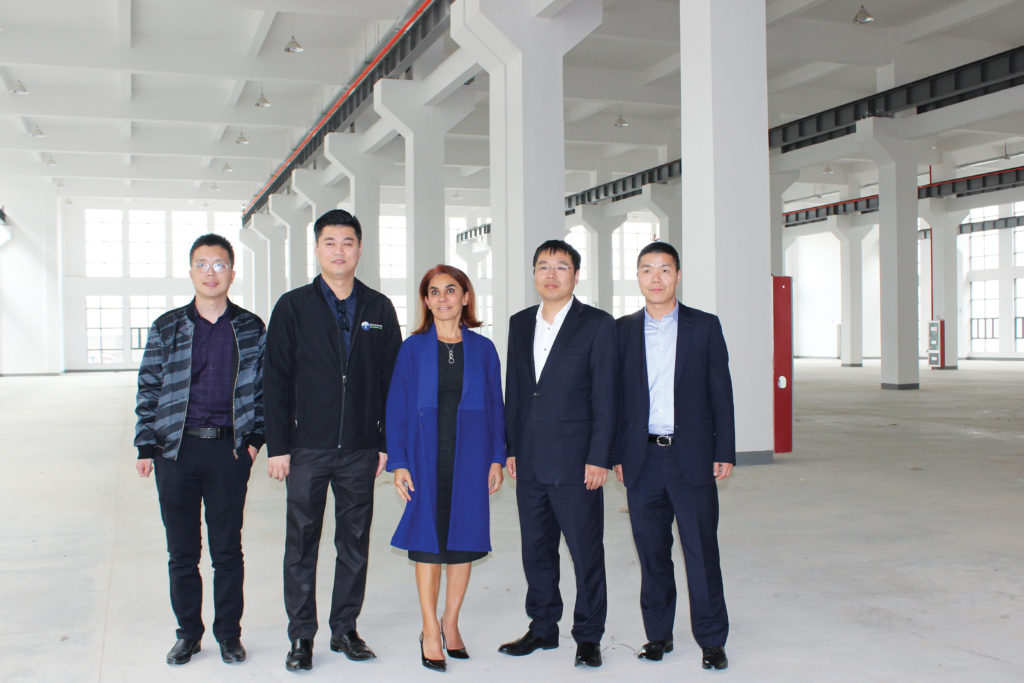Asia’s dramatic growth into the world’s manufacturing powerhouse comes at a cost. Pollution, in many forms, shrouds the economic benefits that industrialization brings to the continent and surrounding areas. Scientists estimate that airborne pollutants have killed hundreds of thousands of people, and it does not take a scientist to see the smog that blankets major cities with a sickly pall that veils the sun.
Now, a Signal Hill firm that provides air pollution control systems for industry is expanding its manufacturing operations in Asia as countries there move rapidly to clear their skies.

“The potential is incredible,” says Anoosheh M. Oskouian, CEO of Ship & Shore Environmental (S&SE), which specializes in air pollution capture and control systems.
Ship & Shore has been expanding its operations outside of the U.S. throughout 2019, installing systems in Spain, India and Thailand and adding to its offices in Canada, Europe and the Middle East.
But the latest step marks new territory for the company. For the first time, it will be manufacturing its systems overseas, with production underway in China and Thailand, the company says.
“Due to the current political climate it makes a lot of sense to start manufacturing in China,” Oskouian says. “Up until this point we have been shipping products manufactured here over there. But with tariffs in place now . . . it made more sense to simply start manufacturing there.”
In October, the company announced the establishment of a new manufacturing plant in Shanghai. While this operation, Ship & Shore China, is located in a previously existing manufacturing facility, another purpose-built plant to be located in China already is on the drawing boards. The company began installing systems in China in 2016, and Oskouian has served as an adviser for the country’s environmental protection agencies.
“We recognize that while the recent tariffs are unfortunate, we can’t allow these short-term complications to steer us away from addressing the pollution control needs of China’s 1.4 billion citizens,” Ship & Shore Vice President of Engineering John Von Bargen said in October.
And in November, the company announced another expansion, this time in Thailand. Ship & Shore Thailand is located in Bangkok, and is intended to serve as the center of operations, including manufacturing, that will take place in that country.
“The . . . move into Thailand arose from both customer demand as well as an urgent need in the region for immediate improvement in pollution conditions, a situation that S&SE finds pervasive throughout developed Southeast Asia,” the company said in a news release.
The need for air pollution control in the region is dramatic, and governments there have already started to slash away at the atmospheric damage caused by rapid industrialization. Earlier this year, Thailand closed more than 400 schools for days as smog settled in over the city. In the past, smog has forced the closure of schools and airports in China.
Ship & Shore’s current area of specialization is in regenerative thermal oxidizer systems that capture and destroy volatile organic compounds. These compounds, commonly known as solvent fumes, hydrocarbons and hazardous air pollutants, combine with other airborne pollutants and, when exposed to sunlight, create ozone, which then helps form the fine particulates that are the basis of smog. One of the common strategies for combating the formation of smog is to stop the release of volatile organic compounds into the air.
Chemical manufacturing plants, petrochemical production and petroleum refineries and factories tend to create those compounds as part of their operations. Ship & Shore’s systems capture those emissions before they are released into the atmosphere and destroy the volatile organic compounds by, to put it simply, burning them into nonexistence. The process destroys 96-99% of the compounds.
Regenerative thermal oxidizers capture the heat generated by this process and use it to pre-heat the incoming emissions stream, thus dramatically reducing the energy needed to operate the system.
As major industrial sources are fitted with the air pollution control systems, government and regulatory attention tends to filter down toward mid-size and small operations. While those tend to emit a smaller amount of pollutants individually, their cumulative impact is substantial. Ship & Shore Environmental has focused on scaling its systems to fit the needs of a variety of applications and also is versed in application, certification and permitting processes.
The company’s aggressive approach to the Asian market is based on what it sees as not only an opportunity for business growth, but a real need to address one of the most significant environmental issues facing industrialized nations. And it is a problem that can be addressed successfully. Oskouian herself recalls flying into the Los Angeles basin and descending into smog thick enough to obscure the landscape – an experience that has not been repeated in recent years.
“I hope that one day all companies, all operations, will have an environmental component in their planning,” she says. “There are no borders when it comes to air pollution. Whatever is created anywhere, we will all wind up breathing it. It makes sense for everyone to have environmental controls in place.
“I try to keep reminding myself, the sky’s the limit. The possibilities in the region [Asia] are great. And we have an opportunity to take advantage of that potential, and to do something that truly helps the citizens there.”
